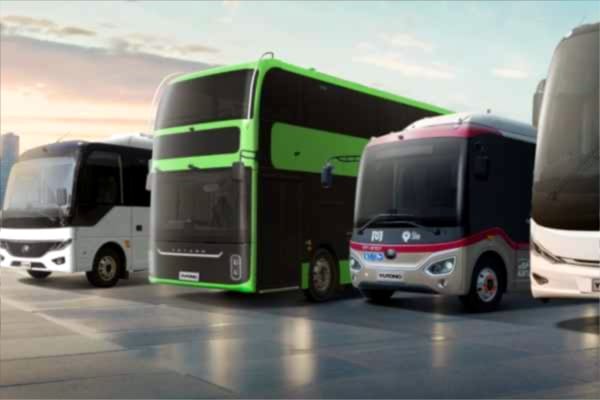The next stop for buses is electric
Australian cities prepare for a new generation of zero-emission buses to transport commuters.

Will lower running costs, noise, and carbon emissions prove irresistible to transport operators mulling the switch to electric vehicles?
At this week’s National Bus and Coach Show in Brisbane the announcements came thick and fast, starting with the unveiling of a small, electric commuter bus designed for urban feeder routes in metropolitan areas.
With space for 35 passengers, bus manufacturer Yutong says the compact size of the E7S makes it highly manoeuvrable for narrow city streets and congested zones.
Public transport contributes substantially to national greenhouse gas emissions, so the pressure is rising for Australian states and territories to transition to zero-emission vehicles in coming years.
The Zhengzhou-headquartered Yutong says it has been diversifying beyond traditional vehicles and into the electric bus market since 2012, with its footprint expanding across the globe.
Tackling the dual challenges of driving-range limitations dictated by onboard batteries and the availability of compatible charging infrastructure for longer-haul journeys has been integral to Yutong's evolution.
Its first inroad into the Australian EV bus market was in Brisbane where the City Council began trialling four electric Yutong buses in 2021. More recently, Transport Canberra and City Services has purchased 90 Yutong E12 electric buses, with the order to be fulfilled over the next few years.
“This strategic shift from ‘product output’ to ‘technology output’ is driving the advancement of electric commercial vehicles."
And extending beyond commuter vehicles, an electric touring Yutong coach has been operating through Tropic Wings Cairns Tours & Charters - an operator that describes itself as “the first and only tour operator in Australia to integrate fully electric coaches into its tours”.
Yutong has traditionally imported complete vehicles, but Asia-Pacific CEO Kent Chang says the focus is shifting to partnering with local distributors and manufacturers, where Yutong is ideally placed to add its expertise in electrical vehicle chassis technology.
Chang says the company actively engages in local collaborations that can leverage its technological advantages.
“This strategic shift from ‘product output’ to ‘technology output’ is driving the advancement of electric commercial vehicles,” he said.
Central to this shift is the Yutong Electric Architecture (YEA), which the company describes as the first EV-specific platform in the commercial vehicle industry that integrates software and hardware to deliver a host of operational efficiencies.
◼︎Louisa Hearn travelled to the National Bus and Coach Show in Brisbane as a guest of Yutong.
Yutong Electric Architecture (YEA) is an electric vehicle-specific platform for commercial vehicles. It was developed by Yutong to integrate its advanced electric drive systems, intelligent management and charging solutions to improve vehicle performance and safety. Yutong says it helps to address the key requirements for market acceptance of larger electrical vehicles in regard to driving range, power and uptime, operational efficiency and cost of ownership.





